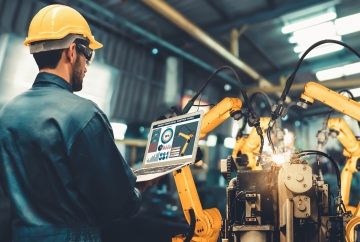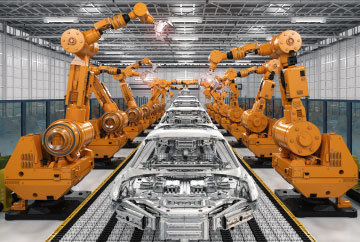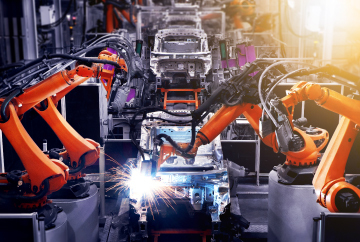Click to zoom in
Track and Trace
IIoT technologies might cause a drastic increase in production quality and throughput; however, they are often not plug-and-play solutions as many manufacturing businesses might think them to be. Therefore, to get the maximum value from an IIoT solution, manufacturers need to completely comprehend the nature of their operations and then invest in a strong, real-time traceability system that collects relevant data proactively and systematically. From basic barcode reading of individual parts to systems providing actionable intelligence on bottlenecks and quality concerns, it is not incorrect to say that traceability systems have evolved with time.
Telematics
According to McKinsey, the global market size for fleet telematics hardware, software, and services will be $75 billion by 2025. Fleet telematics technologies are gaining traction at a rapid pace. This is clear from the fact that nearly 15% of vehicles have telematics installed as standard, and there are about 100 million telematics units in operation globally. Telematics enables businesses to store and analyze fleet operations data. This helps companies predict failure and determine proper intervals for preventive maintenance, making fleets more efficient and reliable by optimizing vehicle usage to enhance fuel efficiency and service levels.
Smart Warehouse
Warehouses offer several opportunities for automation such as shuttle systems, automated material storage, and retrieval systems, smart shelves, smart picking robots, collaboration robots (cobots), automated and intelligent sorting, picking, and packing systems, besides drones that execute inventory inspection. In addition, a digital twin creates a digital duplicate of a warehouse better to understand the results available from myriad digital technologies, helping design optimum warehouse operations. Augmented-reality tools that make picking multiple orders at one go less difficult and more effective, and exoskeletons to minimize injury from repeated heavy-material handling are other Industry 4.0 solutions that provide immense support to the warehouse workers.
Paperless Manufacturing
The industry is witnessing a remarkable digital transformation, a transition that will transform plant floor operations and begin a new era in manufacturing, Industry 4.0, powered by the Industrial Internet of Things (IIoT). Technological advancements, legislation changes, and a growing marketplace are some factors that will drive the need for paperless manufacturing. In addition, manufacturers are under pressure to go paperless owing to the demands of the regulatory and compliance authorities for the generation of automated digital records. Embracing paperless manufacturing has several benefits, including improved accuracy, high-quality electronic record keeping, and the availability of easily shareable data.
Quality Control
IIoT technologies play a crucial role in quality management besides enhancing day-to-day operations, such as helping improve employee safety, operational efficiency, asset productivity, and product quality. For example, machine-vision algorithms can perform automated quality inspection and quality control by employing predictive algorithms, relieving constraints in workforce availability while improving the precision and threshold of quality checks. As SKU (stock keeping unit) counts increase for finished products and raw materials, making end-to-end traceability certain becomes more and more vital for quality. Industry 4.0 technologies, including simple barcode scanning, RFID tracking, and blockchain, can help.
Rapid advances in technology are key to the evolution of Industry 4.0 in manufacturing. Technologies such as Artificial Intelligence, Machine Learning, Industrial Internet of Things (IIoT), and Automation are instrumental for the smooth functioning of smart factories. For example, IIoT can make factories more efficient, save on costs and minimize risk for human operators by transforming linear manufacturing supply chains into interconnected digital supply networks (DSN).





